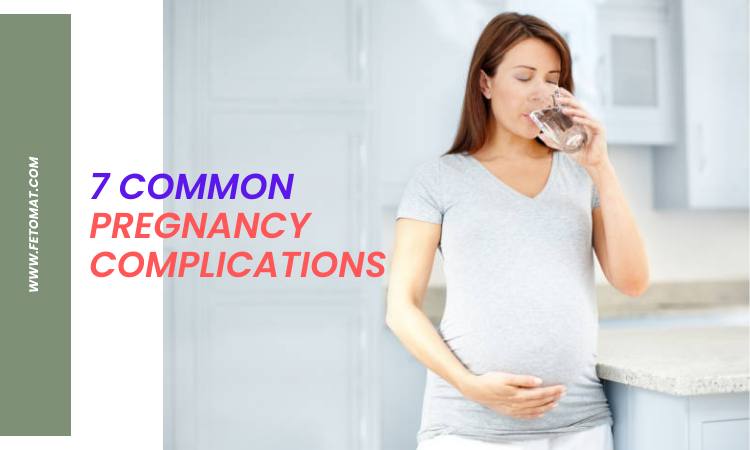Pregnancy is a time of great joy and anticipation, but it can also be filled with stress and worry. While most women have healthy pregnancies with no issues, some experience complications. Here’s a list of some common pregnancy complications:
- Preeclampsia:
Preeclampsia is a condition in which a pregnant woman develops high blood pressure and signs of damage to another organ, such as the kidneys or liver. This can develop after the 20th week of pregnancy and usually goes away once you give birth. It isn’t much you can do to prevent preeclampsia. Your doctor may prescribe medicine or put you on bed rest if they think that’s necessary for your health and for the health of your baby.
- Gestational Diabetes:
The incidence of gestational diabetes increases with age (it can also occur in younger women who have never been pregnant). Women who develop this condition have too much glucose in their blood after eating (high blood sugar) due to increased insulin resistance during pregnancy.
- Preterm labor:
Premature labor begins too early, before 37 weeks gestation, and can lead to premature birth (before 37 weeks gestation). If your water breaks before 37 weeks gestation or contractions begin, call your practitioner immediately because this could be labor starting soon or it could mean that something else is going on with your baby’s health that needs attention right away. You may need to be hospitalized for observation or have tests done to determine if this is true preterm labor or another problem altogether.
- Nausea and vomiting
Nausea and vomiting (morning sickness) are very common in early pregnancy, but some women have symptoms throughout their entire pregnancy. The exact cause isn’t known, but it may be related to high hormone levels that stimulate your digestive tract and make it more sensitive to odors and tastes that would normally be pleasant (such as certain foods).
- Spontaneous abortion:
Miscarriage, ectopic pregnancy, and stillbirth all fall under the umbrella term “spontaneous abortion.” Spontaneous abortion is when an embryo dies before 20 weeks of gestation.
- Anxiety and depression:
Although anxiety and depression aren’t technically complications, they’re still very serious issues that many pregnant women face. In fact, the rate of postpartum depression is highest among new mothers who have experienced depression before becoming pregnant. If you’re feeling anxious or depressed during your pregnancy, talk to your doctor about getting help. Your doctor can help you find the best treatment plan for your situation.
- Placenta previa:
This condition occurs when the placenta partially or completely covers your cervix (the opening to your uterus). Placenta previa can lead to serious bleeding during delivery because the placenta breaks apart during contractions instead of being pushed out of the way by contractions as it should be. Placenta previa can also lead to problems with fetal growth restriction (when a baby is born too small for its gestational age).
Final words:
Knowing the signs of pregnancy complications is important. The likes of preeclampsia can lead to serious consequences for mother and child. For help, reach out to the best gynecologist in Kolkata for pregnancy. If you don’t know one such doctor, simply Google “obstetrician near me” and find an experienced specialist.

